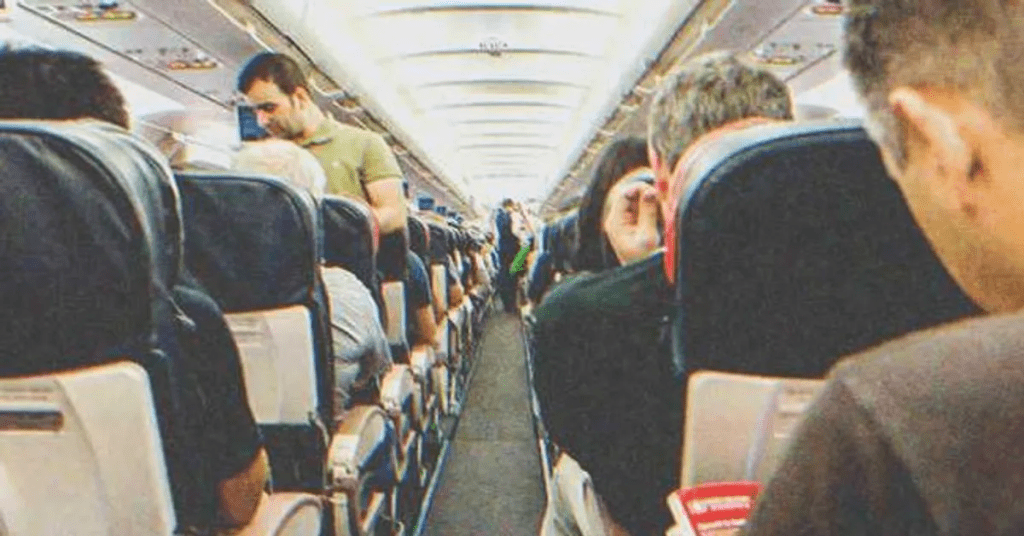In the confined space of a first-class airplane cabin, a man’s callous behavior towards a fellow passenger highlighted the deep-rooted issues of discrimination, entitlement, and lack of empathy that continue to plague our society.
The incident unfolded as James Courtney, a self-proclaimed wealthy individual, found himself seated next to an overweight woman. Rather than approaching the situation with understanding and compassion, Courtney’s immediate reaction was one of pure disdain and hostility.
As the woman settled into her seat, Courtney’s frustration boiled over, and he began unleashing a barrage of cruel and derogatory remarks. He mockingly questioned the woman’s eating habits, suggesting she had consumed “3,000 doughnuts” to reach her size. Courtney’s blatant fat-shaming only intensified as he cruelly advised the woman to “book TWO seats” the next time she traveled.

The woman, visibly distressed, tried to apologize for the minor elbow jab, but Courtney refused to show any empathy. Instead, he continued his merciless assault, suggesting the woman’s “whole budget goes on nachos and hot dogs” and that she should “pass the hat” to her fellow passengers for financial assistance.
As the woman’s eyes filled with tears, Courtney felt a sense of satisfaction, reveling in the discomfort he had inflicted. When the flight attendant offered the woman a drink, Courtney’s cutting remarks continued, mocking her choice of a diet soda and implying it was “a bit late in the game” for such a beverage.
The flight attendant, visibly uncomfortable with Courtney’s behavior, chose to ignore his derogatory comments and focused on providing compassionate service to the woman. However, Courtney’s sense of entitlement and lack of empathy persisted, as he expressed his intention to complain about the flight attendant’s perceived rudeness.
As the flight progressed, the woman, unbeknownst to James, was revealed to be the renowned opera singer Allison Jones. When the captain made the announcement, the entire cabin erupted in applause, leaving James feeling increasingly out of place and uncomfortable.
In a moment of confrontation, the flight attendant intervened, sternly warning James that his behavior towards Allison would not be tolerated. This was a pivotal turning point, forcing James to confront his own prejudices and consider the impact of his actions on others.

When Allison returned to her seat, James seized the opportunity to apologize, hoping to smooth over the incident. However, Allison’s response was both poignant and thought-provoking. She did not simply accept his apology; instead, she challenged him to reflect on his underlying biases and the importance of treating all people with respect, regardless of their outward appearance or perceived status.
Allison’s words resonated deeply with James, shattering the preconceptions he had held. In that moment, he was forced to confront his own arrogance and recognize the inherent worth and dignity of every individual, regardless of their circumstances.
This encounter serves as a powerful reminder that our actions, no matter how small, can have a profound impact on those around us. By choosing to approach others with empathy and understanding, we have the potential to inspire positive change and foster a more compassionate society.
The story of James and Allison underscores the importance of looking beyond superficial judgments and embracing the inherent humanity in every person we encounter. It is a testament to the transformative power of a single act of courage and the ability of one individual to challenge and reshape the perspectives of another.
In the high-stakes environment of air travel, where tensions can flare and tempers can run high, this encounter serves as a poignant reminder that even the smallest acts of kindness and understanding can have a lasting impact. As we navigate the complexities of modern life, may we all strive to emulate the courage and compassion displayed by Allison Jones, and in doing so, contribute to the creation of a more empathetic and inclusive world.


